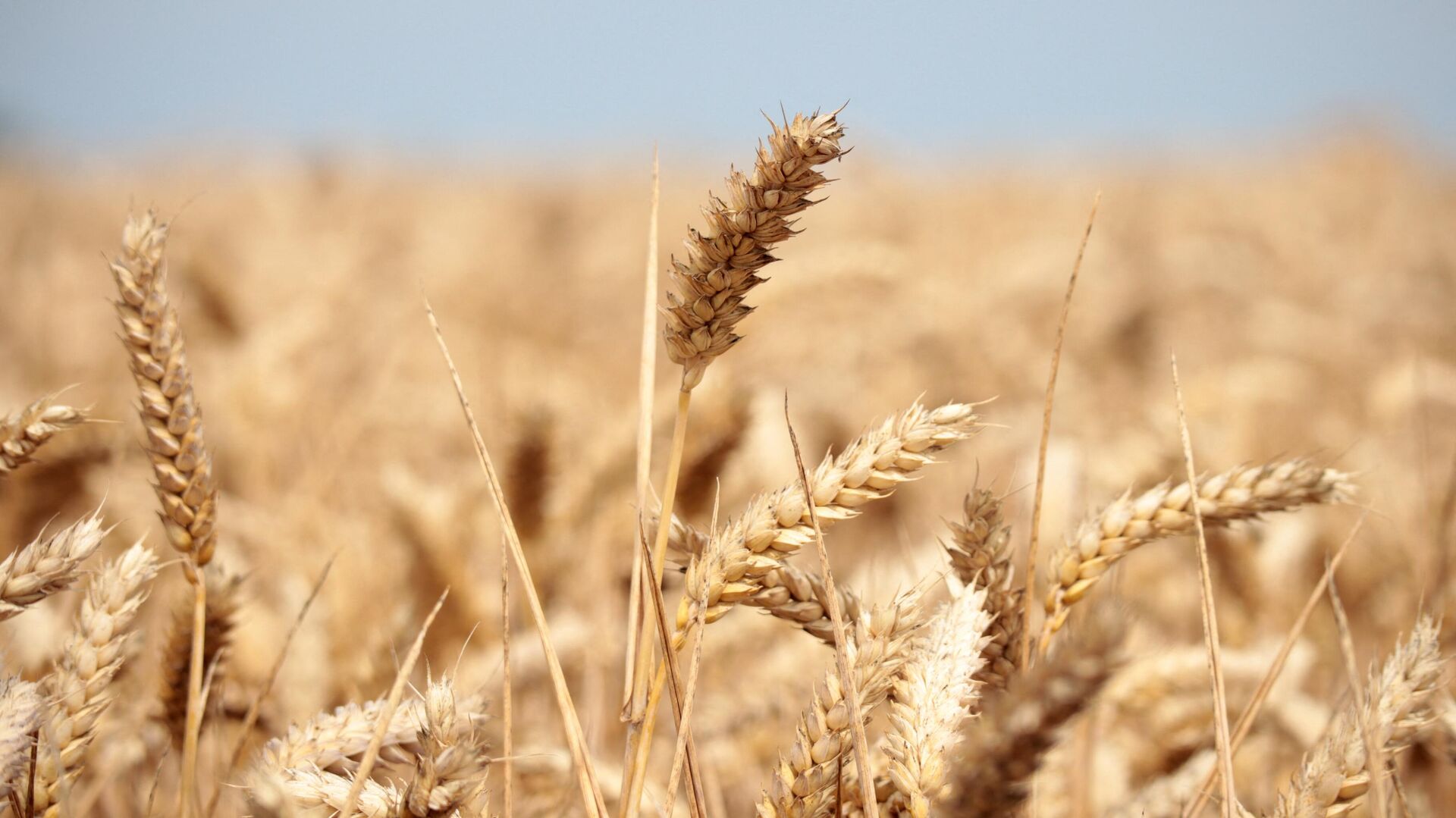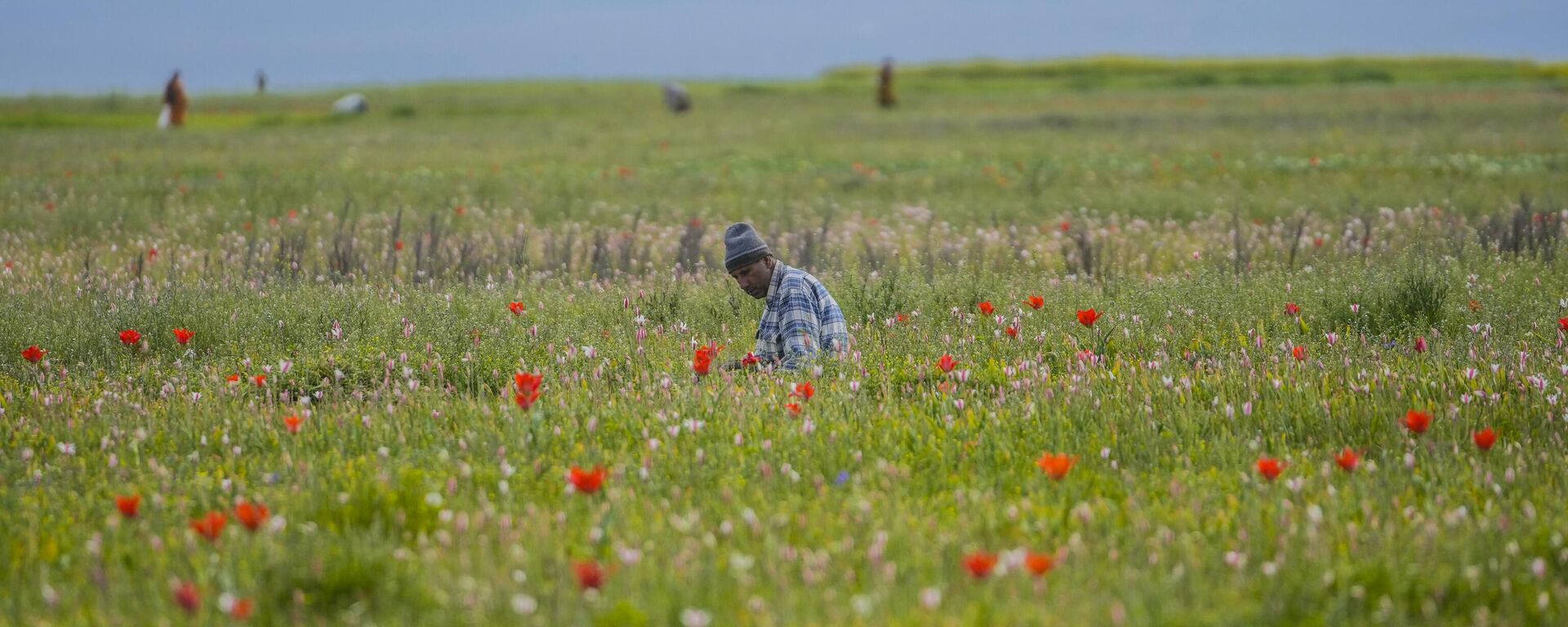https://sputniknews.in/20230808/what-is-indias-role-in-helping-solve-global-hunger-crisis-3472217.html
What is India's Role in Helping Solve Global Hunger Crisis?
What is India's Role in Helping Solve Global Hunger Crisis?
Sputnik India
The worsening hunger crisis in the world cant be resolved without India being the driver of the change, organizers of the Global Food Security Summit 2023 have told Sputnik.
2023-08-08T19:16+0530
2023-08-08T19:16+0530
2023-08-08T19:17+0530
india g-20 presidency
food security
food insecurity
climate change
g-20
sustainable developments goals (sdg)
india
poverty
agriculture
free food scheme
https://cdn1.img.sputniknews.in/img/07e7/01/1c/678663_0:0:3641:2048_1920x0_80_0_0_ae6ee1e67dc9b5fd4c144ef7e95d0684.jpg
The worsening hunger crisis in the world can't be resolved without India being the "driver of the change", organizers of the Global Food Security Summit 2023 have told Sputnik India.The two-day event is being held in New Delhi under India’s G-20 presidency. The event on 8 and 9 August will witness discussions among industry, government and civil society on issues of food security, climate change, and sustainable development.TTC is the co-organizer of the Global Food Security Summit.Vishal Kumar, the CEO Feeding India, a non-profit working towards reducing hunger among underserved communities in India, underlined that New Delhi was at the “centre of the global attention when it comes to the issue of food security”.While India has made significant strides in the last two decades in uplifting millions from poverty, a UN-backed report last October said that the South Asian country is still home to the most number of poor globally.The Indian CEO recalled that the Indian government played a crucial role in addressing the global food security challenge during the pandemic by distributing free foodgrains to nearly 800 million people.The PM Jan Kalyan Yojana is a federal scheme under which citizens from underprivileged backgrounds were provided five kilogram of wheat or rice and a kilogram of pulses free of cost.Malnutrition Has Worsened Globally Since Covid PandemicKumar said that although India has been able to achieve “atmanirbharta (self-reliance)” in food production since Independence, the malnutrition situation here has gotten worse since the pandemic, like in other parts of the world.He said that Covid-related disruptions in the food aid sector created an “unprecedented situation” for not only the government, but also the private sector and civil society.“Now, there is a need for a disproportionate focus on eradicating malnutrition,” he stated.Reducing Food Wastages Could Boost Food Security, Says TTCSoni said that a key focus of the Global Food Security Summit was to explore ways to “prevent food wastages as means to address food insecurity challenges”.Soni said a significant part of processed food manufactured from grains goes waste as it expires sitting on the shelves.He said that preventing food wastage not only reduced food insecurity, but also promoted sustainable agriculture and advanced climate change goals.Soni said that food which goes waste on the shelves should be “re-purposed” so that it could reach the economically-weaker sections of Indian society.He suggested that “gap in food supply chains” must be plugged to address the problem of food wastages.“The concept of food banks has been picking up in India. Most of the relatively affluent households in India buy more than they are able to consume. Here, we must ensure that individuals, organizations and institutions fulfil their responsibilities by not only buying responsibly, but by also donating the expired or surplus food,” Soni stated.
https://sputniknews.in/20230616/global-south-hardest-hit-by-supply-chain-disruptions-in-agriculture---pm-modi--2514288.html
india
africa
Sputnik India
feedback.hindi@sputniknews.com
+74956456601
MIA „Rossiya Segodnya“
2023
Dhairya Maheshwari
https://cdn1.img.sputniknews.in/img/07e6/0c/13/138962_0:0:641:640_100x100_80_0_0_2cb44360dbcdf6d84bf4b299cd045917.jpg
Dhairya Maheshwari
https://cdn1.img.sputniknews.in/img/07e6/0c/13/138962_0:0:641:640_100x100_80_0_0_2cb44360dbcdf6d84bf4b299cd045917.jpg
News
en_IN
Sputnik India
feedback.hindi@sputniknews.com
+74956456601
MIA „Rossiya Segodnya“
Sputnik India
feedback.hindi@sputniknews.com
+74956456601
MIA „Rossiya Segodnya“
Dhairya Maheshwari
https://cdn1.img.sputniknews.in/img/07e6/0c/13/138962_0:0:641:640_100x100_80_0_0_2cb44360dbcdf6d84bf4b299cd045917.jpg
world hunger, poverty in india, global food security summit 2023, world hunger crisis, food security in india, food security and poverty, sdg poverty, sdg goals, pm garib kalyan yojana, pm garib kalyan anna yojana, ukraine news, ukraine india, ukraine russia news, g20 india, g20 summit, india free food programme, india free food scheme,
world hunger, poverty in india, global food security summit 2023, world hunger crisis, food security in india, food security and poverty, sdg poverty, sdg goals, pm garib kalyan yojana, pm garib kalyan anna yojana, ukraine news, ukraine india, ukraine russia news, g20 india, g20 summit, india free food programme, india free food scheme,
What is India's Role in Helping Solve Global Hunger Crisis?
19:16 08.08.2023 (Updated: 19:17 08.08.2023) According to the UN, nearly 228 million people in India live below poverty line, the most for any country.
The worsening hunger crisis in the world can't be resolved without India being the "driver of the change", organizers of the Global Food Security Summit 2023 have told Sputnik India.
The two-day event is being held in New Delhi under India’s G-20 presidency. The event on 8 and 9 August will witness discussions among industry, government and civil society on issues of food security, climate change, and sustainable development.
“If India wins, the world wins. If India is able to achieve the Sustainable Development Goals (SDGs), the world would be able to achieve the SDGs,” said Parul Soni, the Global Managing Partner at New Delhi-based Thinkthrough Consulting Private Limited (TTC), a consultancy specializing in providing advisory support to companies and institutions towards achieving sustainable development.
TTC is the co-organizer of the Global Food Security Summit.
Vishal Kumar, the CEO Feeding India, a non-profit working towards reducing hunger among underserved communities in India, underlined that New Delhi was at the “centre of the global attention when it comes to the issue of food security”.
“We are home to one-sixth of humanity. India’s importance in addressing the global food challenge is because of the sheer magnitude of both consumption and production,” Kumar said.
While India has made significant strides in the last two decades in
uplifting millions from poverty, a UN-backed report last October said that the South Asian country is still home to the most number of poor globally.
Kumar said that New Delhi will play a “critical part in addressing the food insecurity challenge” not only during its ongoing G20 presidency, but also in subsequent years.
The Indian CEO recalled that the Indian government played a crucial role in addressing the global food security challenge during the pandemic by distributing free foodgrains to nearly 800 million people.
“Since Independence, we have made tremendous progress in achieving food security in the country. We have seen how during the Covid pandemic, the Indian government was able to provide free grains to nearly 800 million people under the ‘Pradhan Mantri Jan Kalyan Yojana’,” the CEO remarked.
The
PM Jan Kalyan Yojana is a federal scheme under which citizens from underprivileged backgrounds were provided five kilogram of wheat or rice and a kilogram of pulses
free of cost.
Malnutrition Has Worsened Globally Since Covid Pandemic
Kumar said that although India has been able to achieve “atmanirbharta (self-reliance)” in food production since Independence, the malnutrition situation here has gotten worse since the pandemic, like in other parts of the world.
“The pandemic disrupted state-backed food security systems across the world. It disrupted meal programmes at schools globally, including in India,” Kumar said.
He said that Covid-related disruptions in the food aid sector created an “unprecedented situation” for not only the government, but also the private sector and civil society.
“Now, there is a need for a disproportionate focus on eradicating malnutrition,” he stated.
The SDG Report released this year noted that progress on eradicating hunger and on “regular access to adequate food” has reversed in recent years, with Covid-related disruptions and the spillover effects of Ukraine crisis worsening food insecurity globally.
Reducing Food Wastages Could Boost Food Security, Says TTC
Soni said that a key focus of the Global Food Security Summit was to explore ways to “prevent food wastages as means to address food insecurity challenges”.
“The production of one kilogram of rice requires 6,000 litres of water. Precious requires are required to grow food. At present, only 850 grams of rice out of every kilogram is being utilized,” the business advisor remarked.
Soni said a significant part of processed food manufactured from grains goes waste as it expires sitting on the shelves.
He said that preventing food wastage not only reduced food insecurity, but also promoted sustainable agriculture and advanced climate change goals.
Soni said that food which goes waste on the shelves should be “re-purposed” so that it could reach the economically-weaker sections of Indian society.
He suggested that “
gap in food supply chains” must be plugged to address the problem of food wastages.
The Indian business leader said that as a means to get this “repurposed” food to those in need, the concept of “food banks” has been picking up in India in recent years.
“The concept of food banks has been picking up in India. Most of the relatively affluent households in India buy more than they are able to consume. Here, we must ensure that individuals, organizations and institutions fulfil their responsibilities by not only buying responsibly, but by also donating the expired or surplus food,” Soni stated.



